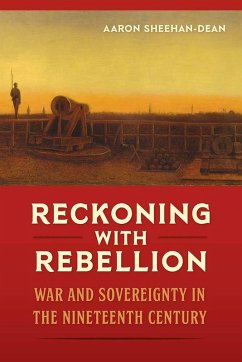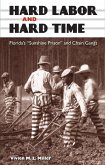An innovative global history of the American Civil War, Reckoning with Rebellion compares and contrasts the American experience with other civil and national conflicts that happened at nearly the same time-the Indian Rebellion of 1857, the Polish Insurrection of 1863, and China's Taiping Rebellion. Aaron Sheehan-Dean identifies surprising new connections between these historical moments across three continents.
Sheehan-Dean shows that insurgents around the globe often relied on irregular warfare and were labeled as criminals, mutineers, or rebels by the dominant powers. He traces commonalities between the United States, British, Russian, and Chinese empires, all large and ambitious states willing to use violence to maintain their authority. These powers were also able to control how these conflicts were described, affecting the way foreigners perceived them and whether they decided to intercede.
While the stories of these conflicts are now told separately, Sheehan-Dean argues, the participants understood them in relation to each other. When Union officials condemned secession, they pointed to the violence unleashed by the Indian Rebellion. When Confederates denounced Abraham Lincoln as a tyrant, they did so by comparing him to Tsar Alexander II. Sheehan-Dean demonstrates that the causes and issues of the Civil War were also global problems, revealing the important paradigms at work in the age of nineteenth-century nation-building.
A volume in the series Frontiers of the American South, edited by William A. Link
Sheehan-Dean shows that insurgents around the globe often relied on irregular warfare and were labeled as criminals, mutineers, or rebels by the dominant powers. He traces commonalities between the United States, British, Russian, and Chinese empires, all large and ambitious states willing to use violence to maintain their authority. These powers were also able to control how these conflicts were described, affecting the way foreigners perceived them and whether they decided to intercede.
While the stories of these conflicts are now told separately, Sheehan-Dean argues, the participants understood them in relation to each other. When Union officials condemned secession, they pointed to the violence unleashed by the Indian Rebellion. When Confederates denounced Abraham Lincoln as a tyrant, they did so by comparing him to Tsar Alexander II. Sheehan-Dean demonstrates that the causes and issues of the Civil War were also global problems, revealing the important paradigms at work in the age of nineteenth-century nation-building.
A volume in the series Frontiers of the American South, edited by William A. Link
Dieser Download kann aus rechtlichen Gründen nur mit Rechnungsadresse in A, D ausgeliefert werden.









